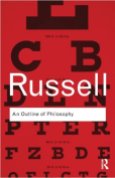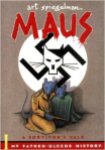We’ve mentioned the book Gadsby once as a part of our Weird Books infographic. Soumya who had come for the BYOB Party had laid her hands on the book and found the experience of reading the book entertaining. Not to be confused with The Great Gatsby, Gadsby book is a lipogram by Ernest Vincent Wright. The entire book has been written without the letter ‘e’. It’s a 50,000 word novel. Having a constraint such as this makes it difficult for the author to use the past tense. Other books too have been written with such constraints, but by far Gadsby is the most popular and the longest attempt we could locate at this meet. The plot is predictable enough- a man called John Gadsby tries to improve the state of affairs of his town and succeeds.
It was a hard book for Wright to write. In fact, it is said that he tied down the letter ‘e’ on his typewriter while he typed for five and half months to achieve this massive feat. The book is now considered a prized possession in one’s private library.
 Sethu picked up a book by Chetan Bhagat called Making India Awesome. He found Bhagat’s opinions on many contemporary issues like poverty, unemployment, corruption, etc interesting. “Many times we expect the government to do things for us when we ourselves can contribute to our elevation,” he said. The book has several short chapters, each one focusing on one issue and solutions envisioned for each.
Sethu picked up a book by Chetan Bhagat called Making India Awesome. He found Bhagat’s opinions on many contemporary issues like poverty, unemployment, corruption, etc interesting. “Many times we expect the government to do things for us when we ourselves can contribute to our elevation,” he said. The book has several short chapters, each one focusing on one issue and solutions envisioned for each.
 Jaya talked about a book called ABC of Relativity by Bertrand Russell. Here’s an excerpt from her book review at Worth a Read:
Jaya talked about a book called ABC of Relativity by Bertrand Russell. Here’s an excerpt from her book review at Worth a Read:
“A Physics course in the very first year at IITK had taught me the formulae related to the special theory of relativity. But my interest in philosophy has kindled in recent past and I felt that puzzling on metaphysical questions in the 21st century is insincere without some intuitive understanding of things like relativity and quantum physics. And it was to gain this understanding, beyond Mathematics, that I picked up ABC of Relativity. This book might very well be the best attempt to explain relativity as non-mathematically as possible. But here is the heart-breaking truth. There is no understanding relativity without mathematics. Things became unintelligible after a while unless I started seeing them mathematically. If the intent is to explain relativity to a non-mathematical mind, beyond a limited point, the book fails. But what must be said here is that perhaps no other book will succeed half as well. Also, Russell’s is a brilliant mind. So sometimes what he mentions casually in a few sentences, as if it is the most obvious thing in the world, needs a lot of concentration and deliberation to understand.”
Read the review here.
More books lined up in Part 4…

 Anish kickstarted the discussion with
Anish kickstarted the discussion with  Krishna explained that there were various traditions of schools of thought in India. Unlike Dvaita or Dualism, Advaita or Non-Dualism subscribes to the idea that there is only one super-consciousness and everything else is non-reality. Vadiraja was one of the last of his ilk; philosophy in India went to sleep mode post the sixteenth century. Other philosophers like Madhvacharya and Nagarjuna were also discussed.
Krishna explained that there were various traditions of schools of thought in India. Unlike Dvaita or Dualism, Advaita or Non-Dualism subscribes to the idea that there is only one super-consciousness and everything else is non-reality. Vadiraja was one of the last of his ilk; philosophy in India went to sleep mode post the sixteenth century. Other philosophers like Madhvacharya and Nagarjuna were also discussed. Archit got the famous book Sapiens by Yuval Harari. We’ve talked about the book many times. It made sense that the book he bought with it was
Archit got the famous book Sapiens by Yuval Harari. We’ve talked about the book many times. It made sense that the book he bought with it was  Although Sapiens means Wise, the term is at best ironic. In the book,
Although Sapiens means Wise, the term is at best ironic. In the book,  Ritu was spurred to get a copy of a book she read long ago when she was young and later again when she was older. The book called
Ritu was spurred to get a copy of a book she read long ago when she was young and later again when she was older. The book called 







